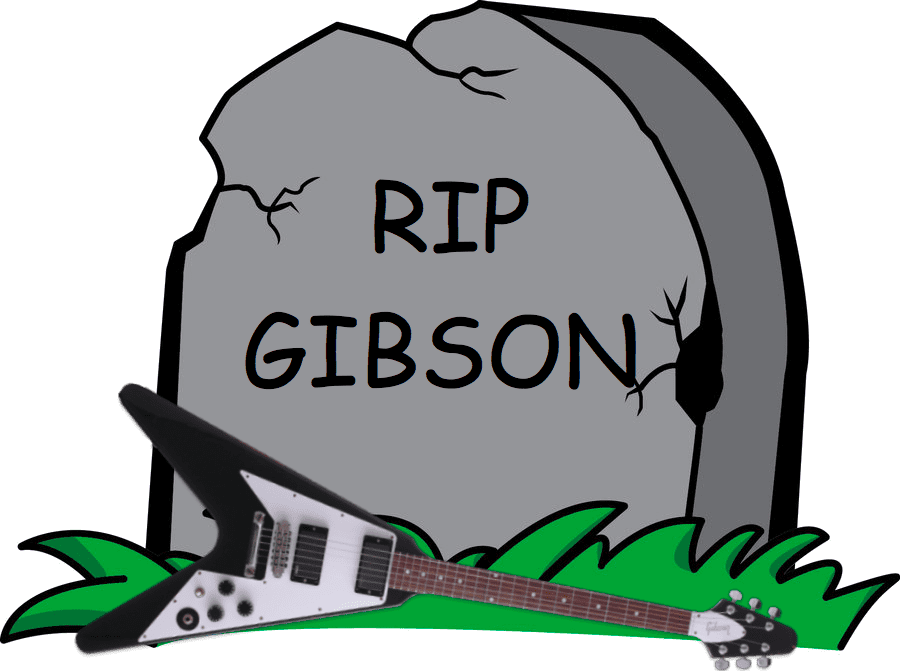Gibson, we only knew you for so long. 116 years in the business, and within the top two culturally significant guitar companies for 72 of them. From Al Di Meola to Marty McFly, one iconic Gibson headstock or another has been at the pointy end of so many iconic moments in music. And with almost 100 years from the death of Orville Gibson, it’s concordantly sad to see a string (or six) of stories about your impending bankruptcy when we type your name into Google.
In 1952 you gave us the Les Paul, so much a staple of the electric guitar that, if the legacy of the instrument could be summed up in a few sheets of A4 paper, it would certainly belong in the top left corner. Who can deny that Slash’s “woman tone” is instantly recognisable from the first note of the first solo in November Rain? Surely it was the sound that came immediately to many viewers’ minds upon seeing the abandoned church in the middle of nowhere in the last season of Westworld, straight out of the November Rain music video.
And then the SG, which, as AC/DC’s Angus Young showed us, needed nothing more than a Marshall to give a dirty, attitude-drenched rhythm tone. The Explorer, which in Metallica’s early years gave us James Hetfield’s So What and More Beer twin sisters, both so much more saturated in the studio than the ESP-made Eet Fuk that succeeded them. The self-evident majesty of the Flying V, of course, needs no words. And let’s not forget the P90 pickup, whose cultural popularity has regrettably been eclipsed by the oddly shaped submachinegun of the same name.
But then knockoff Chibsons got better and cheaper, and prospective musicians started looking to newer, shinier genres. You tried being other brands, like Onkyo, Teac, and even Philips, and moreover changed your name from Gibson Guitar to Gibson Brands, but we knew you wouldn’t ever stop being a guitar brand. Your bonds started to mount, your credit rating started to drop – and kept dropping. You tried making cheaper guitars, but that only put you in competition with your subsidiaries. And then you tried selling cheaper guitars at higher prices. You didn’t turn up to NAMM, and you listed a premium guitar with visible chipping on your website: the last stumbles of a company failing to make ends meet. And who approved the Modern Flying V that looks like unintentional Star Trek homage? But, we told ourselves, you’d survived being sold in 1986 – surely there was a chance we’d open our eyes to see you’d returned as the old Gibson we recall?
It’s the Gibson we all remember that, despite every financial nail in the coffin (rosewood, of course), we’ll still have. Your bankruptcy may be inevitable, but so too is your legacy. So thank you, Gibson, for 116 years of highs and lows. Thank you for your indelible mark on rock and roll lore. Thank you for being you.
Rest in peace.
Jeremy teaches guitar, and can’t decide whether he likes his Ibanez or Jackson more.
We acknowledge the Ngunnawal and Ngambri people, who are the Traditional Custodians of the land on which Woroni, Woroni Radio and Woroni TV are created, edited, published, printed and distributed. We pay our respects to Elders past and present. We acknowledge that the name Woroni was taken from the Wadi Wadi Nation without permission, and we are striving to do better for future reconciliation.
